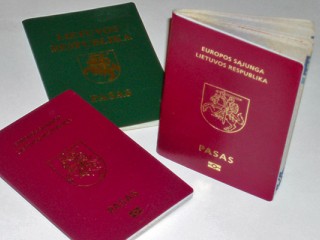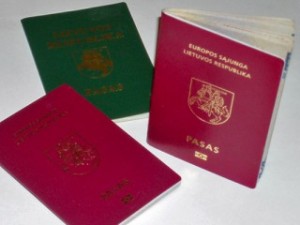- 2014/04/11
Draft law concerning spelling of names and surnames – a big failure

 On April 10 this year, the next draft law in the Lithuanian Parliament concerning the spelling of names and surnames in documents was registered. The proposal was signed by the members of all factions, except for the Electoral Action of Poles in Lithuania.
On April 10 this year, the next draft law in the Lithuanian Parliament concerning the spelling of names and surnames in documents was registered. The proposal was signed by the members of all factions, except for the Electoral Action of Poles in Lithuania.
An alternative project promises the possibility to write “names and surnames” in the original form on the further pages of a passport. The European Foundation of Human Rights (EFHR) notices that this act, as well as the proposal of the social democrats (http://en.efhr.eu/2014/04/07/the-bill-liberalizing-the-spelling-of-names-there-is-still-no-solution-to-the-problem/) does not solve the problem of the spelling of names and surnames for members of national minorities.
Direct beneficiaries of the proposal registered by the social democrats are mixed marriages because it would enable them to make uniform the spelling of surnames where the husband is a foreigner. However, the recently registered alternative draft law neither fulfils the standards of the protection of national minorities nor takes into consideration the problems of the representatives of the Lithuanian nationality.
In the first place, the “name and surname” entry in the original form on the separate page of a passport does not identify a person in public life. In practice, it means that this notation is neither official nor is it enforced. That confirms part 4 of Art. 5 of the alternative draft law, which predicts that the non-Lithuanian spelling of the name and surname of a Lithuanian citizen, regardless of the entry existing in a passport, cannot be officially used instead of the Lithuanian form. A citizen of Lithuania will still be identified based on the entry on the main page of a passport, so according to the Lithuanian “version” of a surname. Lithuanians marrying foreigners will still struggle with the legal problems in cases where a husband’s surname is spelt differently. Thus, this additional entry cannot even be called a “name and surname” because it would only ever be a notation appearing in the vital record. It is another legal fiction, with the aim of diverting attention away from the existing problems. This kind of suggestion does not change anything.
Parliamentarians promoting the bill use the example of Latvia, which has similar legal regulations. EFHR would like to emphasize that Latvia is the only country in the European Union that has such laws. The example of Latvia is, in this case, not imitable because the United Nations Commission on Human Rights declared a violation of point 17 of the International Covenant on Civil and Political Rights in the case of Raihman v. Latvia. The Commission decided that a forced change of surname constitutes interference in a private life and a violation of human rights.
It is worth remembering that the citizens of the European Union do not have a duty to own a passport. Likewise, a Lithuanian citizen has the option to choose between a passport or an identity card. The alternative bill would enable a legally non-obliging entry in a document which a person simply does not have to possess.
EFHR believes that only a bill that takes into consideration the problems and needs of national minorities and what is more, mixed marriages, can guarantee a proper rationing of human rights protection for all.



